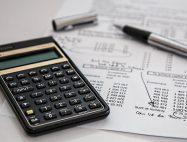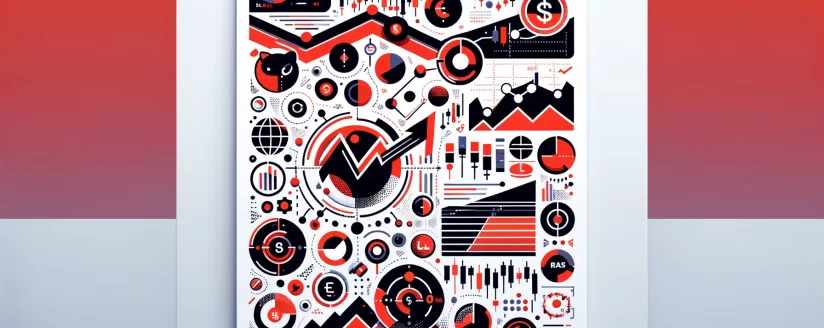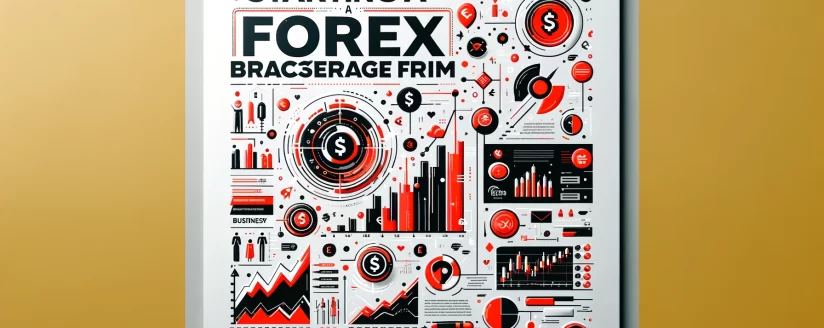You must have heard about Forex trading which often investors talk about. It is enabled by Forex brokers and is a way to short foreign exchange pairs in hopes to make a decent profit.
Who are Forex Brokers?
Forex brokers are fundamentally those businesses or firms that give traders an offline or online platform that enables them to purchase and sell foreign currencies as a short-term investment. Transactions occur with different pairs of currencies including USD, EUR, JPY, CHF, and more. Forex traders use the forex brokerage service to buy or sell any currency they want to trade with the expectation of earning a profit.
An overwhelming majority of forex brokers deal in a trivial volume of the overall forex market. Traders use them to obtain access to the always open forex market so they can speculate on currency prices. Large enterprises such as investment banks can also provide forex broker services to their institutional customers. Technically, a forex broker acts as a middleman between the trader and the interbank system that provides liquidity.
How Do Forex Brokers Operate?
A forex broker enables a trader to open a trading position on its platform by purchasing a certain currency pair and closing that position by selling the same currency pair. On their platform, you have access to all popular currency pairs including EUR/US, USD/JPY, USD/CHF, GBP/USD, and the currencies of G-10 countries. Moreover, traders can also choose to trade emerging nations’ currency pairs.
Generally, the price offered by the forex broker is dependent on the financial institutions or banks with whom they have a line of credit. This way they have access to forex liquidity and can fulfill large volume positions. Many forex brokers rely on a combination of banks to offer their trading clients the best price available. In the last few years, forex brokerage firms have come a long way and now it is quite easy to open an account and you can do it online.
Brokers ask traders to deposit a minimum sum of working capital before they can trade. They also give the option of leveraged trading which means traders can buy positions that are far more worth than what they have in their accounts. Leverages start from 2X and go as high as 400X. That’s why forex trading can be quite risky as well.
How to Become a Forex Broker?
Forex trading market is the world’s biggest asset marketplace when it comes to liquidity and sheer volume. On a daily basis, $5.1 trillion worth of forex trading occurs and that’s why it is considered to be a lucrative business by many. If you have an interest in and experience of forex trading and know the ins and outs of the market, you can also consider becoming a forex broker. Here’s what you need to do:
- Register your forex company — Before you start your brokerage firm, you have to register your forex company in the jurisdiction of your choosing. There are three types of jurisdictions including unregulated, regulated, and semi-regulated. The scope and license expenses will vary depending on the jurisdiction you pick. Keep in mind that registering in unregulated jurisdictions might lead to issues with operating in highly regulated regions like the EU.
- Get a forex technology service agency — To run behind the scenes operations, you need specialized expertise and experience. You can hire any trustworthy FX technology firm for support and complete IT solutions. IT will help you get underway and enable you to build a user base quickly.
- Add forex trading platforms and payment modes — Some of the most popular trading platforms in the forex market include MetaTrader4, MetaTrader5, and cTrader. There are some other lesser-known platforms as well. If you don’t have a huge budget, you can consider the MT4 White Label solution. That way you can operate in your own business’s name. Moreover, you need to add convenient and affordable payment modes including bank cards, wire transfers, and e-wallets.
How Do Forex Brokers Make Money?
For FX brokers, there are multiple ways to make money and they can utilize different touchpoints to create revenue streams. The general revenue channels include:
- Bid-Ask Spread — Most of the revenue is generated through the bid-ask spread of a foreign exchange pair. It is the difference between the bid and the asking price and it’s measured in pips. For instance, if the EUR/USD pair is at a bid price of 2.30010 and an asking price of 2.30013, the spread would be 0.00013 or 1.3 pips. When a retail trader opens a trade at the asking price and later on closes the trade at the bidding price, the forex broker gets the spread.
- Subscription Fee — Some forex brokers lock advanced features behind a paywall. Large volume traders who need those features may have to pay a monthly or annual subscription fee to get access to those features.
- Commission/Transaction Charges — There is also an option to charge a certain percentage based on the trading volume. However, due to fierce competition, the majority of forex brokers don’t usually charge any commission or keep it low.
Who Provides Services to the Forex Brokers?
There is a multitude of services on whom forex brokers rely on:
- Financial institutions — To get a line of credit and access to liquid foreign exchange reserves that enable large volume trading.
- Technology firms — To build the IT infrastructure behind the business that keeps all the records and maintains operational flow with precision.
- Legal assistance — For registering your forex company and ensure legal regulatory compliance, you also need help from lawyers and solicitors.
- Trading platforms — To provide an exceptional experience to traders, forex brokers need services like MT4, MT4 WL, MT5, xStation, or cTrader.










